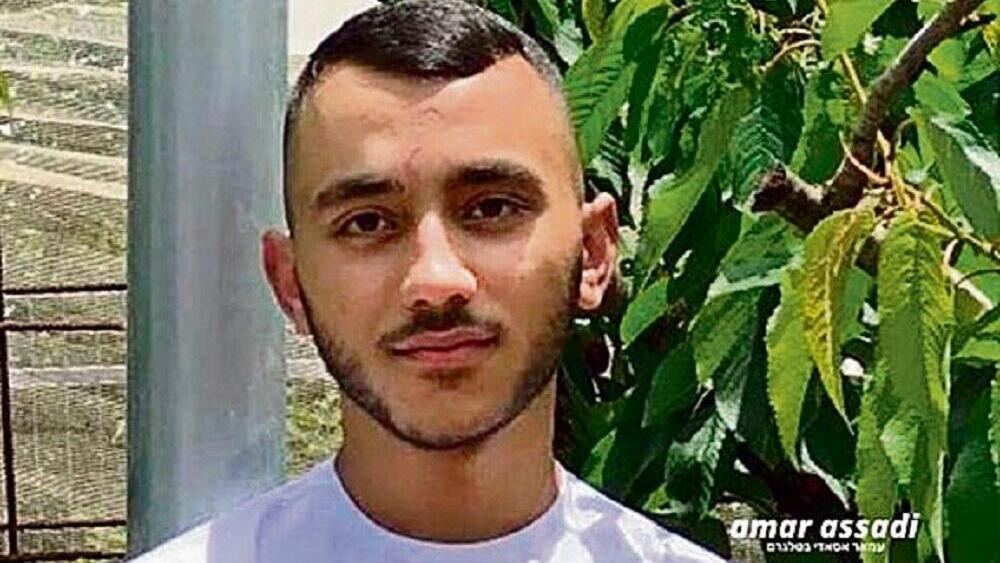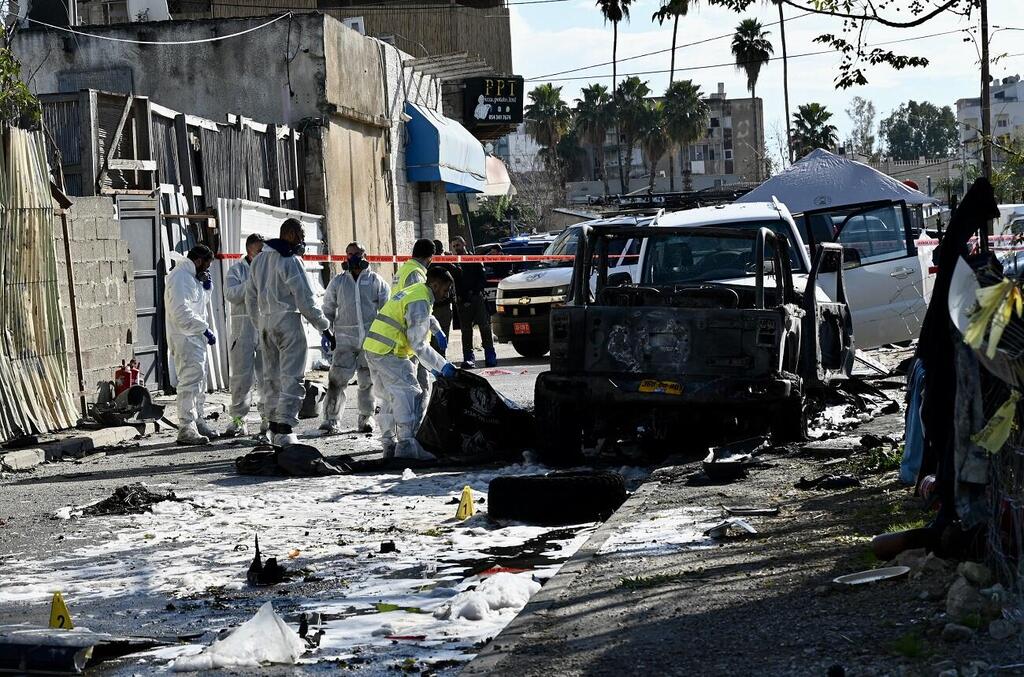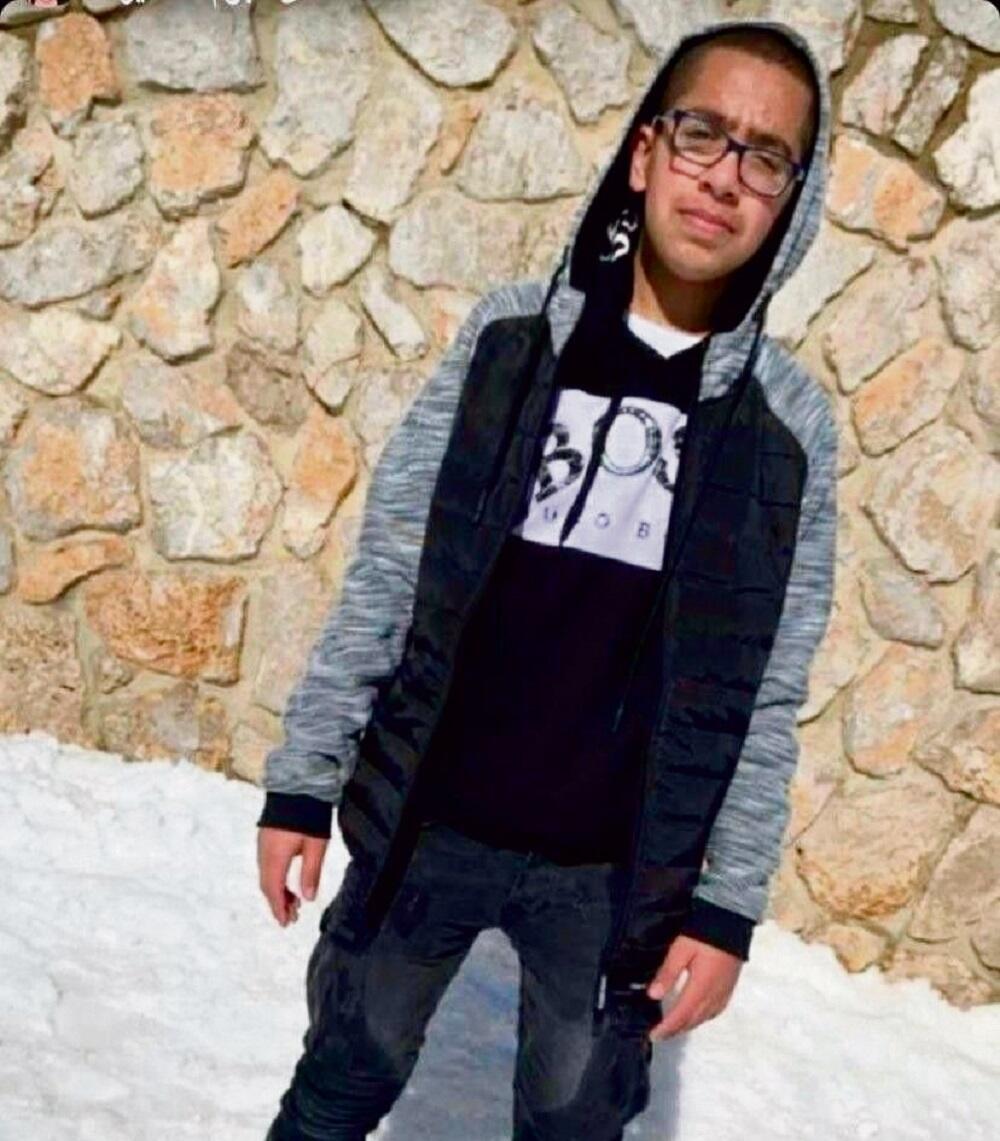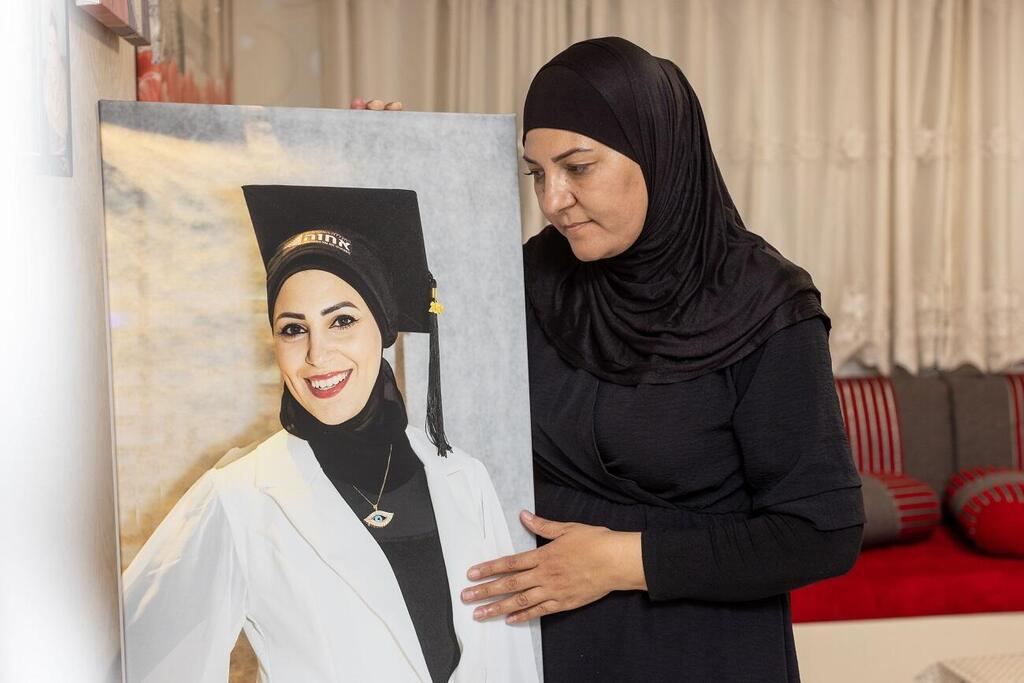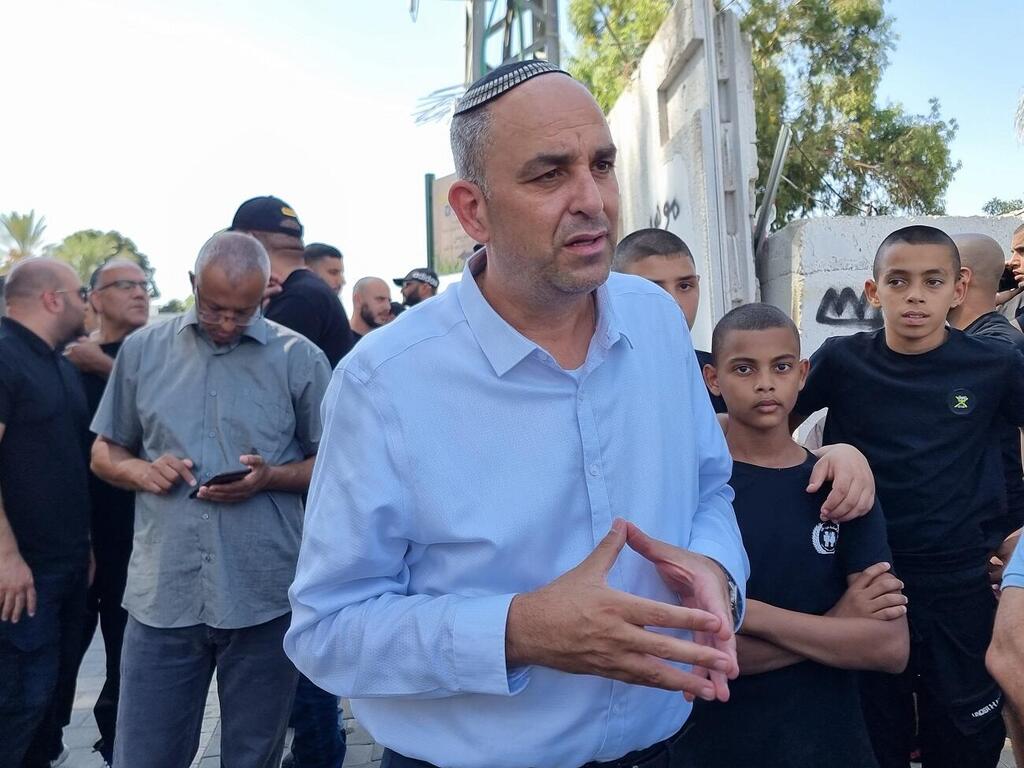Getting your Trinity Audio player ready...
About 18 months ago, 18-year-old Anas Al-Wahwah from the central city of Lod went out with his mother to do some shopping. While waiting in the car, a gunman approached him and shot him in the midriff before quickly fleeing the scene.
He wasn't some criminal who managed to evade the local police force. Rather, he was known as a good kid who stayed out of trouble and excelled in school. The police have estimated that he was only tangentially involved in a dispute between multiple families in the Arab section of the city.
His story is far from unique. In fact, it is so common that Lod has earned the notorious reputation of being the murder capital of Israel. Over the past decade, 70 people have been murdered in a city with a population of 90,000.
A media organization called "Shomrim" (Guardians) has mapped out all murder cases in the city since 2013 and noticed that the majority of murders take place in the eastern part of the city, which is primarily inhabited by Arab residents.
In cases where the victim was Jewish, the perpetrator was always caught and punished. However, for Arab victims, less than 25% of murder cases resulted in the perpetrator being held accountable.
At first glance, it may appear that the reason for the escalating violence in Lod is straightforward. The city has been neglected and is facing severe economic hardship, and there is little to no collaboration between its residents and Israeli law enforcement. However, upon closer examination, a more intricate and nuanced situation emerges.
There is an Arabic expression called "Ma-wu-jah" which derives from the Arabic word for pain. It refers to the strategy of not targeting the most visible or prominent members of a family in order to cause harm. This is because such individuals are more likely to be prepared for an attack and less likely to be complacent.
Instead, you target a weak spot. By killing a defenseless and innocent family member who was never meant to be involved in this conflict, you devastate the entire family because this is a loss they never saw coming.
With that said, individuals who are determined to carry out an assassination may still attempt to do so even in very risky circumstances. In late 2020, 16-year-old Omar Abu Saluk was shot dead in a drive-by shooting as he and his family were headed to Kafr Kassem with a police escort.
What was the cause of the feud? Based on reports, there was a disagreement between families regarding the use of a local mosque. Insults were exchanged, and promises of revenge were made and promptly carried out.
Ghassan Munayer, a local political activist, explains that many conflicts in the city are rooted in financial issues. Since it is highly improbable for the Arab sector to secure a loan through conventional banking channels, many resort to unscrupulous sources for funding. These sources are unwilling to forgive debts or exhibit any leniency or patience toward borrowers who are unable to repay their loans.
The deep-rooted distrust that the Arabs in the city harbor toward Israeli law enforcement results in even the pettiest disputes between youths escalating into a full-blown war if left to fester.
"When I was a kid," Munayer recalls, "there was a case that started on a basketball court. One of the kids wanted to join the game, but the others refused. When he persisted, he was slapped. He then went and got his father and uncles, who went on to kill the grandfather, father, and nephew of the kid who had slapped him.
In Israeli society one father goes to the other, they talk it out and that's that. In Arab society, it triggers a blood vendetta."
Retired police chief Yifrach Duchovny says: "While the police have the means to investigate any such matters, we have found that often the best way to solve the problem was to arrange a sit-down between feuding families and groups. Done correctly, it stops the bloodshed for years. Sometimes permanently."
These remediation committees are often approached by conflicting parties, which may include families, couples, neighbors, or others. The committee first declares a hudna, which is Arabic for a truce, for a few days to allow both sides to calm down. Then, the committee begins the process of healing, with the goal of helping both sides let go of their animosity towards one another.
If the dispute involves construction, the committee may seek advice from architects and other construction experts to help find a resolution. In any field, there are experts who can provide valuable insights, and the committee may consult them to identify a solution that satisfies both conflicting parties.
7 View gallery
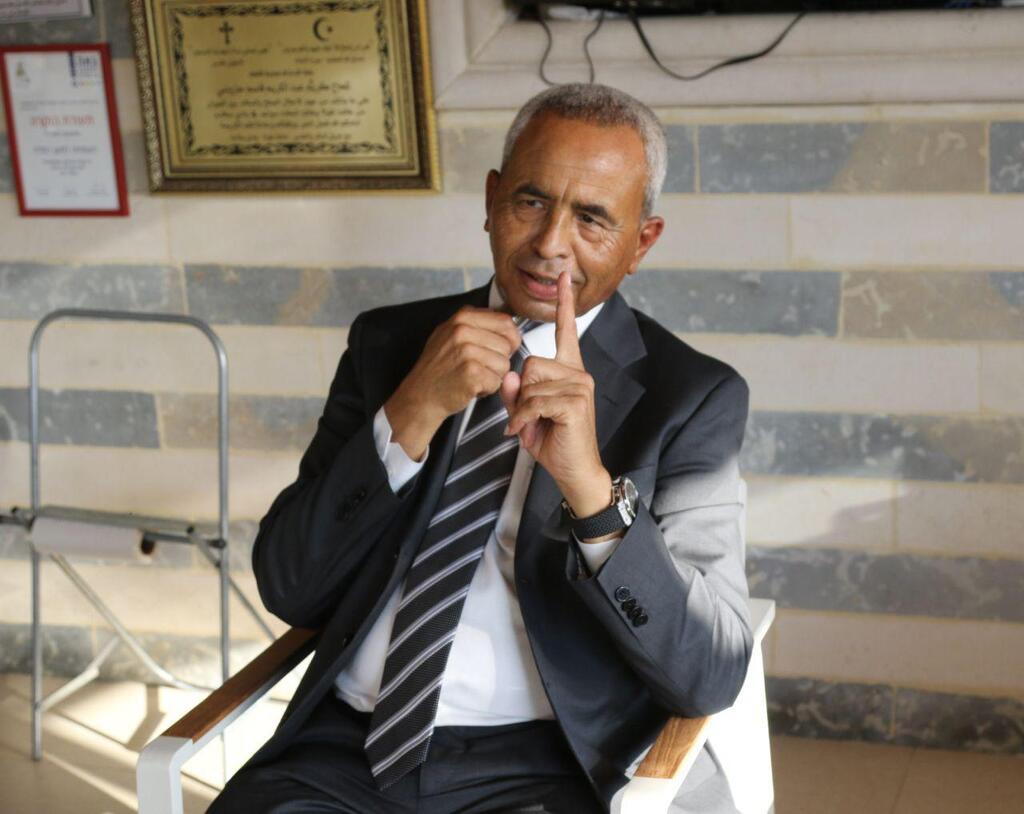

Haj Khraim Kharoushi, a member of a remediation committee: 'The young prefer the ease of pulling a trigger'
(Photo: Avi Mualem)
However, Haj Khraim Kharoushi, a member of such remediation committee, believes their impact has diminished over time, as the younger generation tends to prefer the ease of pulling a trigger rather than engaging in a complex discussion to reach a solution.
Another significant cause of death in Arab society is domestic violence, where family members kill female relatives for reasons such as dressing modestly, marrying someone the family disapproves of, disobeying the husband, or attempting to run away with their children, among others.
In many instances, the perpetrator will hire a hitman and prepare an alibi in advance. However, not everyone is so cunning. For instance, 19-year-old Najla al-Amouri was killed by one of her brothers, who strangled her to death. He confessed that he did so because he was unhappy with the way she was living her life. As a result, he was sentenced to 30 years in prison.
In 2020, Rabab Abu Siam appeared at her mother's doorstep, declaring that she had endured enough physical and emotional abuse from her husband. While residing at her parents' home, she began filing for divorce.
In 2021, the husband was arrested on suspicion of threatening to harm her physically but was later released. As more evidence of her dangerous situation came to light, the police tried to persuade her to move to a safe house, but she refused.
Further attempts to persuade her that her life is at risk proved futile. She steadfastly refused to seek refuge in a shelter, but did consent to relinquishing all financial claims during the divorce.
But it wasn't enough. In July of last year, as she sat in the yard with her daughter on her lap, a masked gunman approached her, shot her several times and quickly fled the scene. During that time, her husband was abroad, making it impossible for him to have been the shooter. Despite numerous efforts to coax a confession from him, he refused to take responsibility for ordering the hit.
A local resident who wished to remain anonymous explained the high frequency of violent incidents in the city. "The younger generation lacks hope. If a man wants to get married, he has no job or money to arrange it," he says.
"An Arab man looks at the Jewish neighborhoods around him that are constantly improving and feels envious. He borrows money from loan sharks in an attempt to build a life for himself, but he becomes unable to repay the debt, and the situation worsens as it goes along."
The resentment and anger towards the Jewish population of the city have been brewing for a long time, and finally erupted in May 2021 during Operation Guardian of the Walls, leading to violent clashes across entire neighborhoods. The police were stretched thin as they tried to contain the violence.
7 View gallery
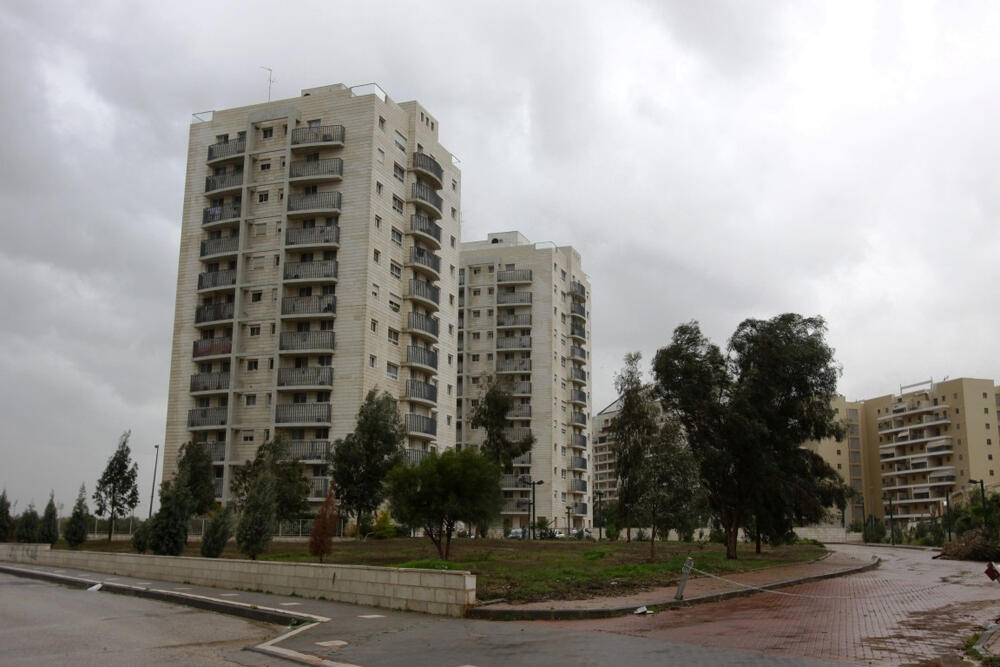

There is a noticeable difference in the quality of infrastructure and maintenance between Ganei Ya'ar, a Jewish neighborhood, and the Arab section of the city
(Photo: Avi Mualem)
"There are refugee camps in this city," says another Arab resident. "They suffer from sewage problems, lack of infrastructure, law enforcement, education, and rule of law. Children have no hope of receiving a proper education, let alone a college degree. Even their parents are often illiterate.
Jewish children have access to afternoon programs, youth movements, sports activities, and courses. Arab children, on the other hand, have nothing except a gun, which they may use against anyone who angers them."
According to Duchovny, the solution is two-fold. Firstly, to saturate problem areas with police to handle incidents as they unfold and to severely punish the instigators. Secondly, to take a community-based approach.
"Everybody thought I was crazy, but I believed that a community policing center could do a lot of good in [the Arab neighborhood of] Ju'arish. We opened the center with two police officers, one Jewish and one Arab," he says.
"The officers started engaging with the local community and developing afterschool activities. They also began building roads and installing large dumpsters to prevent waste from being thrown on the ground. The carrot-and-the-stick approach brought incredible results."
With the establishment of more educational institutions, including in the Arab section of Lod, Mayor Yair Revivo takes greater pride in the city. "These are historic processes that have not occurred for the city's Arab population since the founding of the city," he said.
"Lod is a city with a diverse population, and it is crucial for everyone to learn how to live together in co-existence, tolerance, and peace. The city matters to us all and conflicting opinions should be expressed without resorting to violence. We live alongside each other, work in harmony, educate ourselves together, and share our lives. All residents of Lod are entitled to live a peaceful life."


